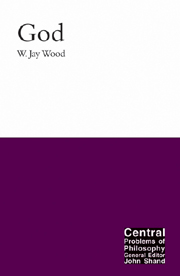Book contents
- Frontmatter
- Contents
- Introduction
- 1 Design arguments
- 2 Cosmological arguments
- 3 The ontological argument
- 4 The moral argument for God's existence
- 5 Religious experience and cumulative case arguments
- 6 Religious belief without evidence
- 7 The problem of suffering
- 8 The nature of God
- Conclusion
- Notes
- Bibliography
- Index
2 - Cosmological arguments
- Frontmatter
- Contents
- Introduction
- 1 Design arguments
- 2 Cosmological arguments
- 3 The ontological argument
- 4 The moral argument for God's existence
- 5 Religious experience and cumulative case arguments
- 6 Religious belief without evidence
- 7 The problem of suffering
- 8 The nature of God
- Conclusion
- Notes
- Bibliography
- Index
Summary
The kalam cosmological argument
We have looked at a sampling of arguments, all of which claim that the world's organization, or the functioning of its parts, can best be explained as the handiwork of God. Opponents of such arguments deny that supernatural agency must be invoked; they believe we have perfectly rational and, perhaps, superior explanations that rely solely on natural laws and processes. The cosmological argument for God's existence does not focus on the world's organization, but on its very existence. The question can be put succinctly: why is there something rather than nothing? At first glance, three options present themselves for explaining the world's existence: (i) in one form or another, the material world has always existed; (ii) the material world simply popped into being out of nothing; (iii) the material world had a beginning in time and was brought into being by something immaterial. Theists, of course, opt for the last explanation. We shall explore two versions of the cosmological argument: the kalam cosmological argument, which has its origins in medieval Muslim philosophy, and the argument from contingency. Each claims that theism best accounts for the existence of the cosmos.
Common sense tells us that effects have causes. If there is a fire in the garage, there must be a cause responsible, be it faulty wiring, arson, flammable chemicals or some combination of causes. The principle that all effects have causes applies to the universe as a whole. If the universe began to exist, then it too must have had a cause of its existence.
- Type
- Chapter
- Information
- God , pp. 37 - 50Publisher: Acumen PublishingPrint publication year: 2010

